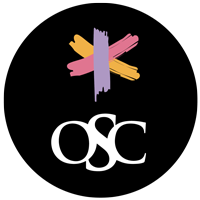History recounted by Philippe Fournier
We have to go back to the 1970s, when the Fédération Musicale Rhône Alpes began organising the first training courses in orchestral conducting.
At the time, these courses were run by Roger Cayrol.
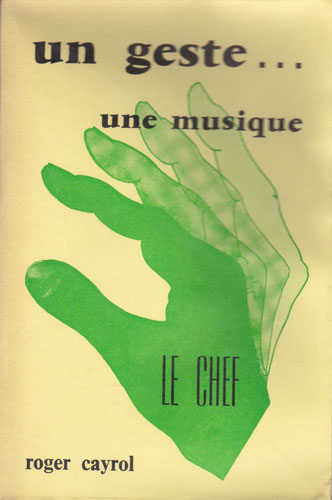
Meeting Roger Cayrol
Roger Cayrol was a prodigious amateur conductor with an extraordinary pedagogical vocation. As technical director of the Rhône music federation, he brought an incredible dynamism to conducting training. He wrote numerous articles and teaching sheets, as well as a book (“Un geste, une musique”) to pass on and develop his vision of conducting instruction.
My meeting with Roger Cayrol was to have a decisive influence on my vision and the development of my work as a conductor. I was around 12 years old when, at my repeated insistence that I wanted to be a conductor, Roger Cayrol agreed to give me conducting lessons at his house. It was an incredible time. I’d get on my bike and go to his house in Vaugneray, and there, in the basement of his house, I’d sit opposite him and conduct the works we were working on together in a surprising silence. From time to time, for certain lessons, he would invite me upstairs to listen to and analyse Wagner’s operas.
I unconsciously filled myself with all that immense literature, the secret of which he possessed down to the very depths of each note and each leitmotiv.
Teaching values
Several years later, at the age of 15, I took part in my first training course and my first experiences in front of musicians. It was in 1976, in Vesc, in the Drôme. This was followed by two more summers of training at Toucy in the Yonne, during which I perfected my work and fully appreciated the motivation and commitment that would be mine in this marvellous role in the service of music.
All the teaching and the philosophy of this teaching will be based on values that will never leave us: respect for music and musicians, humility in the face of the mission that is conducting an orchestra, constant observation and questioning of our actions and choices, hard work and rigorous involvement.
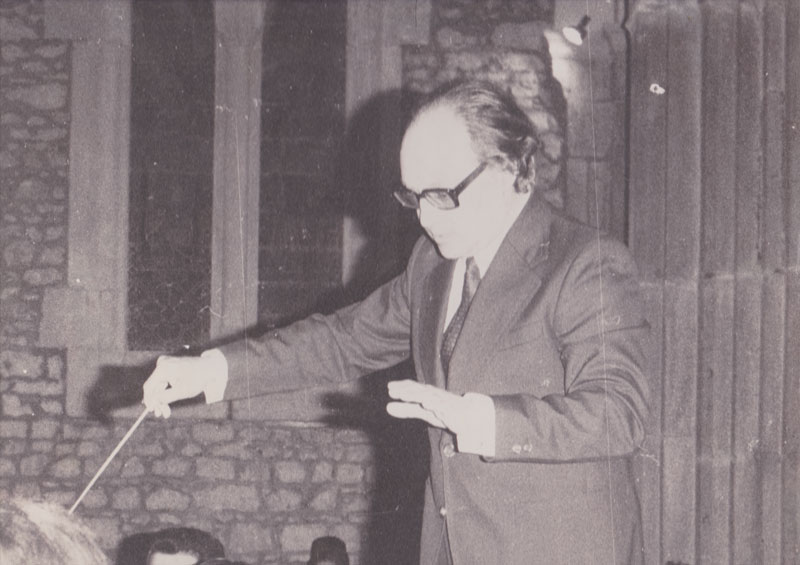
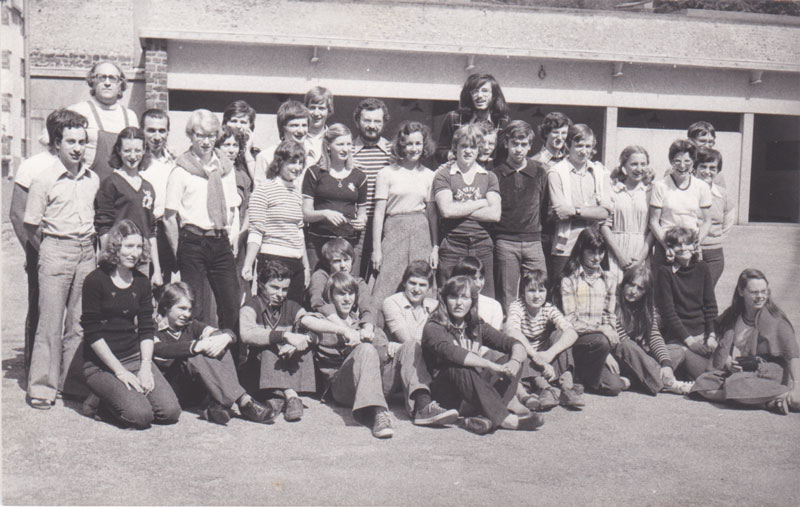
The “conductor” trainees, top left, Roger CAYROL
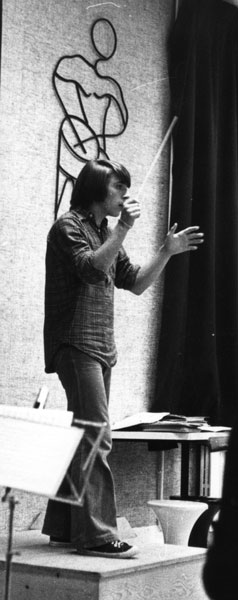
Philippe Fournier, Toucy 1978
Then in 1979, the Rhône music federation decided to organise this course every summer in July in Savigny. It was my first course as a teacher, and the start of a series of incredible encounters and exciting artistic and human adventures. In 1980, Jean-Pierre Prajoux joined the training team. We never left each other again.
Roger Cayrol ran the course until 1999, when his son Marc-Henry Cayrol took over, and I took over in 2005. At my instigation, I brought in new instructors, including Patrick Roger (then solo English horn at the Lyon opera and a specialist in sophrology and stress management), Franck Adrien (an actor) and a number of other guest instructors to broaden the scope of the workshops and give greater depth to the conductor’s work (human management, psychology, musical analysis, pedagogy, administrative rights and responsibilities, etc.). It was from this period onwards that Florent Gilfaut became a regular contributor and developed the approach to computer music.
In 2014, the Rhône music federation, which until then had organised the course, decided to stop it. I decided to organise it under the aegis of the Orchestre Symphonique Confluences, giving it a more international dimension.
The two conductors, Frances llongueres from Spain and Camilo Giraldo from Colombia, joined Jean-Pierre and me to form the current team of trainers. We’re always supported by complementary and punctual contributors.
Despite the fact that the majority of our students are French musicians, they now regularly come from all over the world to attend the July course in Lyon. These include Belgium, Canada, Italy, Switzerland, Morocco, Tunisia, Algeria, Senegal, Mali, Spain, Turkey, Colombia, Mexico, Guadeloupe…

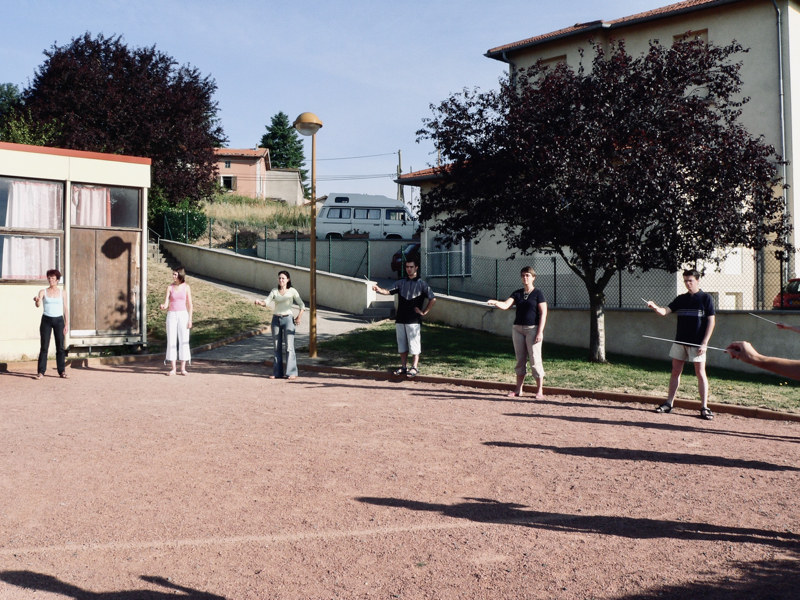
Course 2005: Duerne
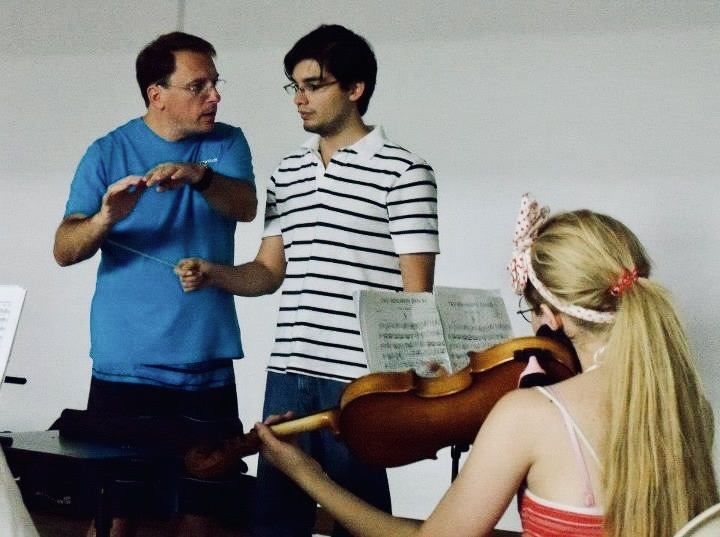
2012: First course in Colombia
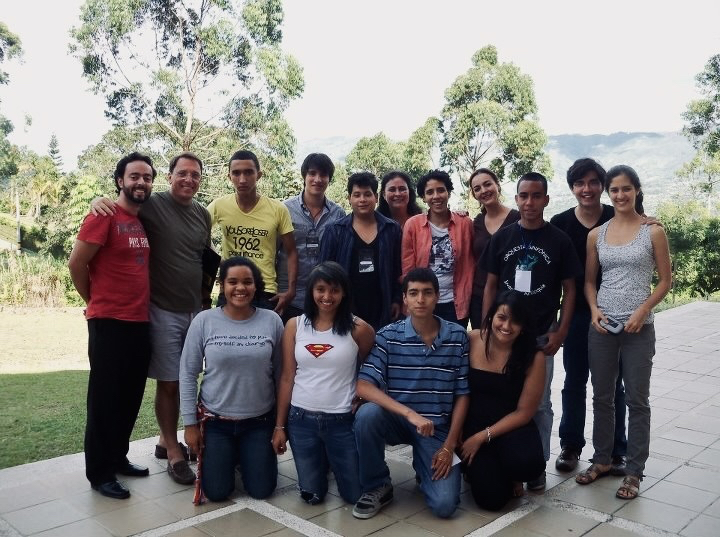
Colombia group picture
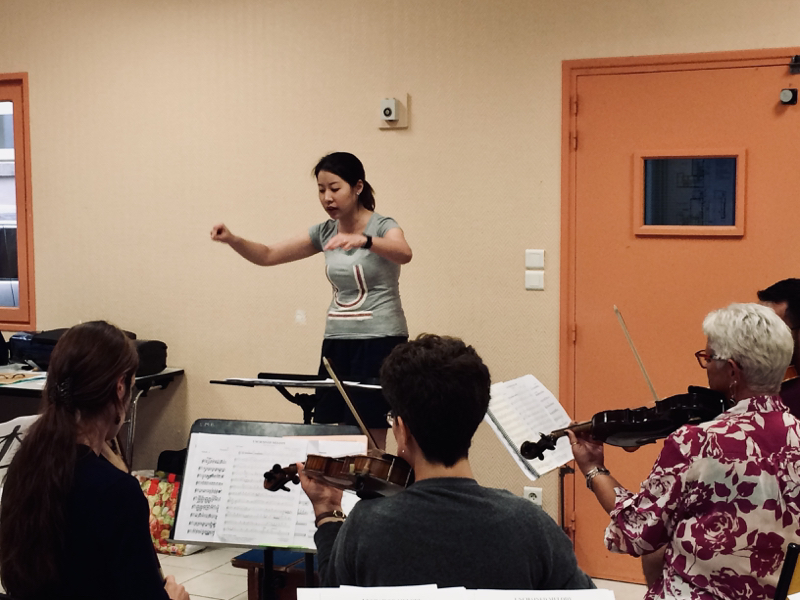
Course 2016: Loreine de HONG KONG
Years of sharing
Bringing together between 20 and 50 trainees depending on the year, we’ve had the pleasure and honour of taking part in conductor training for 44 years now. While the interest in this training is still there, the profiles of the trainees have changed. In the 80s, there was a real need to train amateur conductors to manage the many amateur orchestras. Since then, with the professionalisation of the musicians’ trade, we’ve seen a change in the audience.
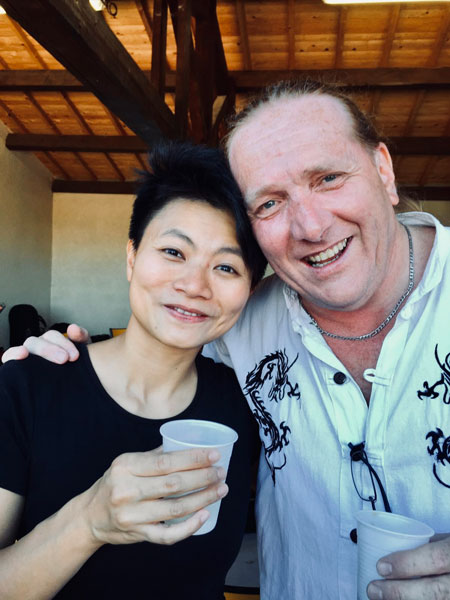
Course 2016: Edith from HONG-KONG with Jean-Pierre
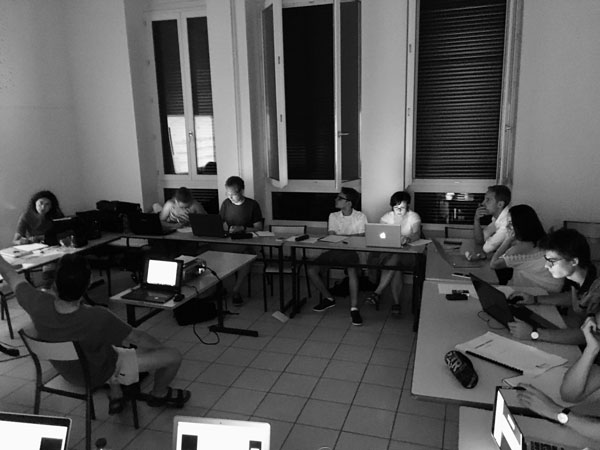
Course 2017: Computer music course with Florent
Today, we not only have amateur musicians (of all ages) who want to improve their skills so that they can conduct their ensembles as they did in the past. But we also have many instrumental teachers who are responsible for conducting orchestra classes or instrumental ensembles, we also have choirmasters who come to broaden their skills, young students who want to take up the profession of conductor by preparing for international conducting classes and competitions, and professional conductors who want to revitalise and deepen their experience.
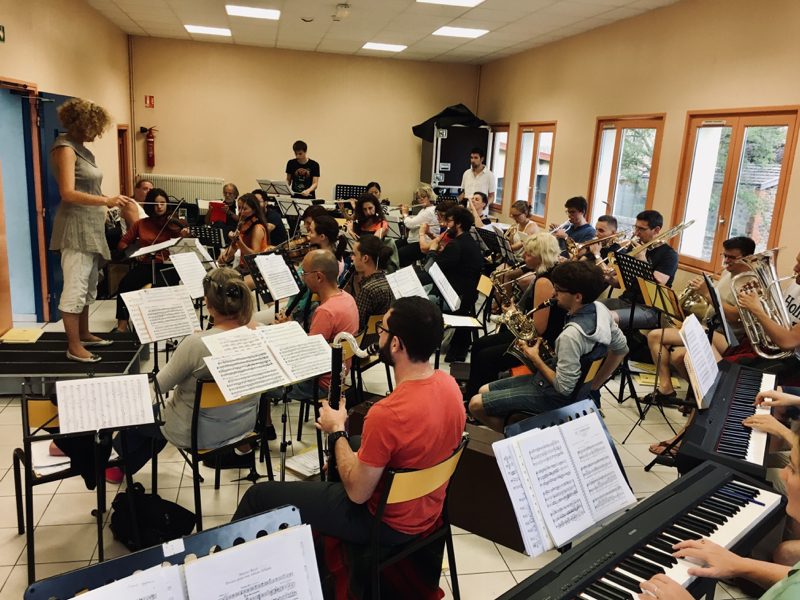
Course 2017: Orchestra workshop
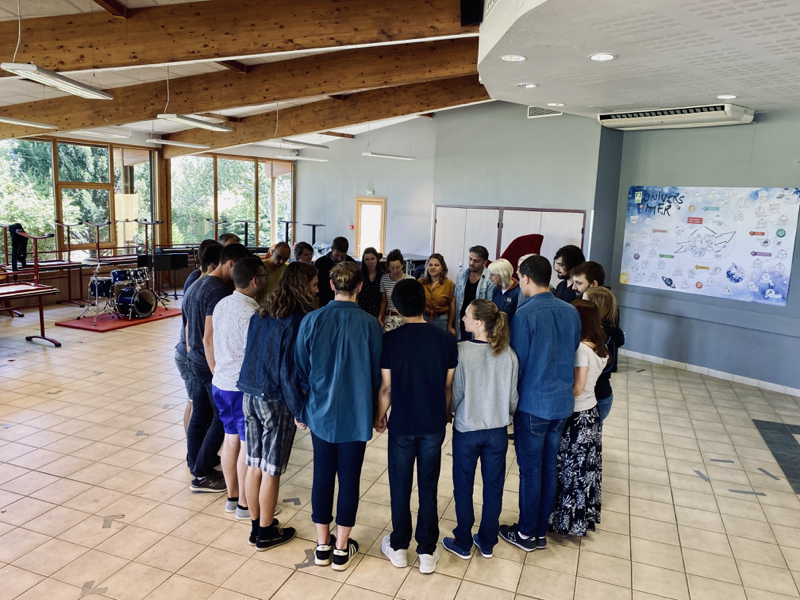
Course 2020: Sophrology and energy management workshop
With so many different requests and objectives, we’re determined to offer the most personalised course content possible.
In 2012, under the impetus of Camilo Giraldo, who was a trainee in France in 2010 and 2011, we created a new course in Colombia. The course is still running today.
It’s also a real pleasure that all these candidates, with such different backgrounds and needs, share the same course and bring so much to each other. In this way, we remain faithful to all the fundamental and pedagogical principles we began over 40 years ago.
